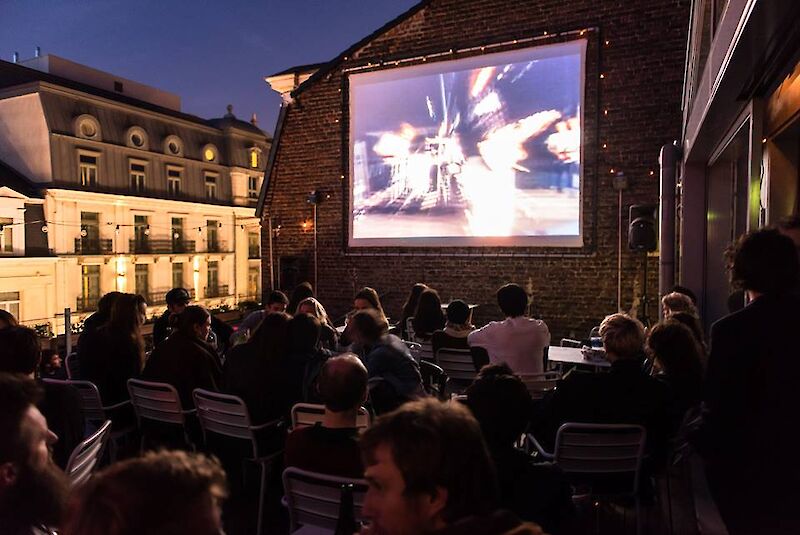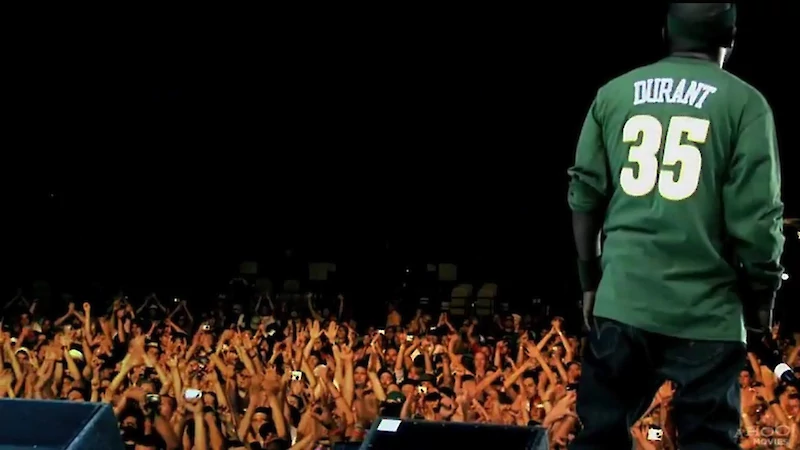FILM
For several years now, Offscreen and the Beursschouwburg have been organizing films on the roof terrace of the Beursschouwburg during the month of June. A new genre has been born: the roof terrace film! With a retro approach, we select the best films and documentaries from the recent history of music, each year focussing on a new decade. We began in the 1960s. This year, we have arrived at the most recent bygone decade of music films: the 2000s.
The 2000s – also called the Ohs, the Nillies, or the Noughties – were the decade when the globalized world became our own back yard. It was the decade of 9/11, which saddled us with an ongoing War on Terror, and the consequences of the banking crisis of 2008, which put a damper on blind faith in endless economic growth. What did continue to rise were the temperature on Earth and the reach of the World Wide Web. A tsunami of information became available, and music permeated every aspect of life, while the music industry – confronted with a technological revolution – seemed almost to be drawing its last breath. It felt as if there were no central point of gravity for popular music, as if everything were migrating towards an ever-expanding margin, in which every possible taste could be catered to in a wink.
One could argue that the strongest tendencies in the music of the 2000s were not individual artists or exciting new genres, but illegal downloads of MP3s, the invention of the iPod and iTunes, free video and music sharing on YouTube, MySpace and Spotify, with democratized production and distribution methods that allowed every young thing with a computer to develop a music legend in their own bedroom studio.
No single musical trend defined this decade, although hip-hop bridged the gap to R&B and began to dominate popular music, to the degree that even mainstream pop idols (such as Justin Timberlake) effectively urbanized their music. Rihanna, Beyonce, Eminem, Outcast, R. Kelly, The Black Eyed Peas and Kanye West were all acts that conquered the whole world. Female artists came to the fore, some with voices of genuine soul (the much-lamented Amy Whinehouse) and stunning stage personalities (Lady Gaga), others both vocally and physically modelled into auto-tuned bitches (Britney Spears, Christina Aguilera). Rock held its own, in such manifestations as indie rock and post-rock (Arcade Fire, The White Stripes, Kaiser Chiefs & co), or soft rock, à la Coldplay. As Sid Yashin became big business and Tomorrowland boomed, music from earlier decades came back, smuggled in on soundtracks, disguised as samples, or onstage in the umpteenth reunion concert. Every style found its crossover, every genre its subgenre: pop punk, post-grunge, trance, electro-house, nu-metal, metalcore, emo, teen pop, crunk and snap music. And, from the very farthest corners of the world, local music was exported and globalized, from India's Bollywood songs and Latin American reggae tones to Congolese rumba and the volenska or hopelandic of Iceland's Sigur Rós. In the 2000s, globalization meant that the music world seemed disjointed and fragmented, but seen from the other side, the whole world could be found on an iPod playlist.
7 June - 1 July
Film WE & TH at 22:00
Rooftopterrace WE → SA open from 12:00









